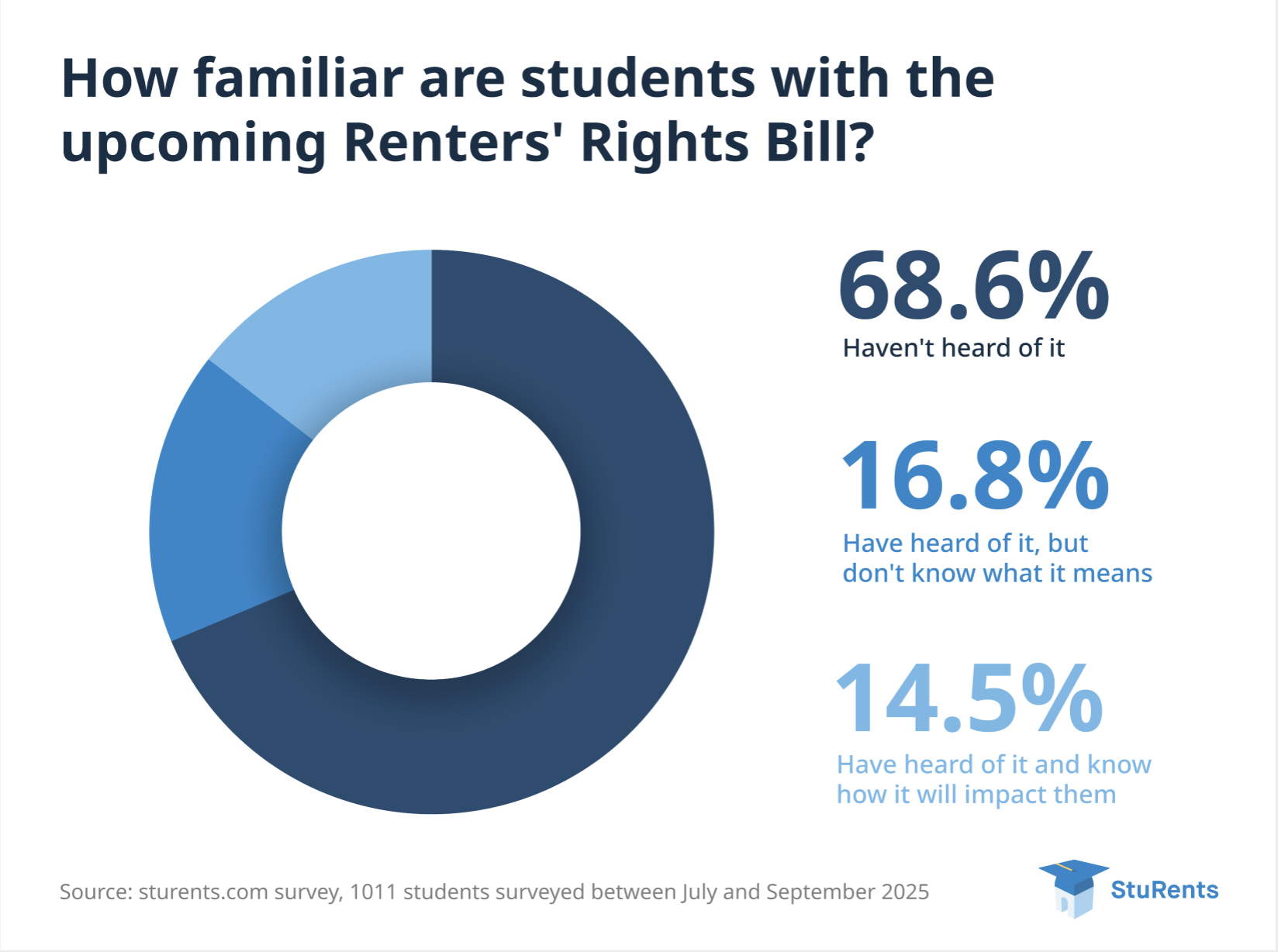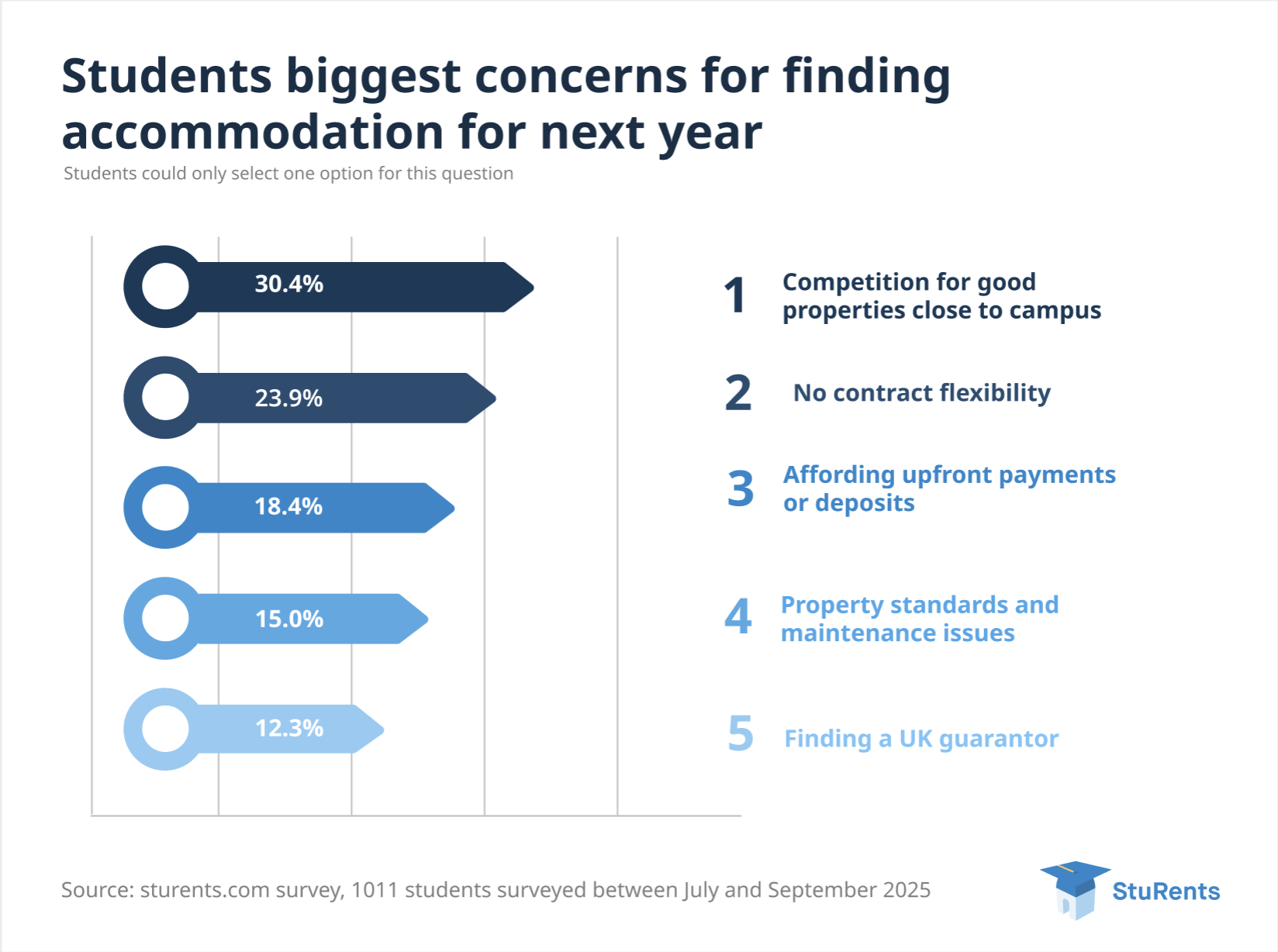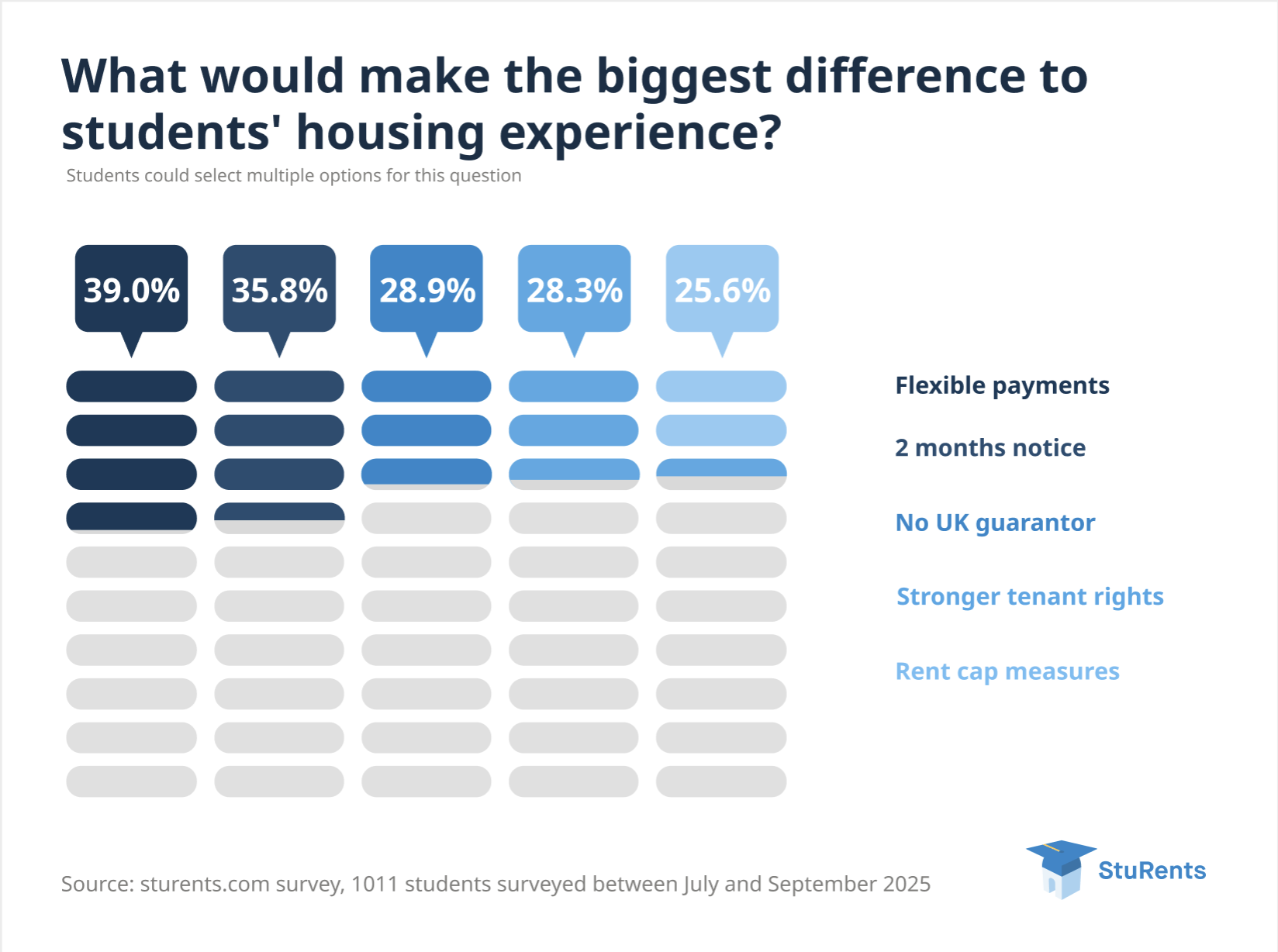
Renters’ Rights Bill update: What’s confirmed, what’s still unclear, and what to prepare for

The Renters’ Rights Bill is approaching the final stage of its journey through Parliament. Royal Assent is now expected in late October or November 2025, a milestone that will see the legislation officially become the Renters’ Rights Act.
But despite its long road through readings, rewrites, and rebuttals, confusion remains about what the Bill will actually change and when. Some elements are now clearly confirmed. Others are still being shaped in regulation. And much of the operational detail depends on where you sit within the student housing sector.
In fact, a recent StuRents survey of over 1,000 students found that 68.6% of students hadn’t even heard of the Renters’ Rights Bill, while just 14.5% said they understood how it would impact them.
Here, we outline what we know so far, what’s still to come, and what landlords and agents should begin preparing for ahead of implementation in 2026.

Royal Assent is close, but the changes won’t apply straight away
Although the Bill is set to become law later this autumn, the majority of its provisions, including the abolition of Section 21, won’t come into force immediately. Instead, the government has confirmed it will provide the private rented sector with sufficient time to prepare before any new rules take effect.
The current expectation is that the new tenancy framework will be implemented from Spring 2026 onwards. Section 21 will remain in place until then, and any valid notices served before the commencement date will still be enforceable, so long as court proceedings are started within three months of that date.
PBSA exemption is confirmed, but only under specific conditions
Following significant sector lobbying, purpose-built student accommodation (PBSA) providers will be exempt from the new tenancy rules, allowing them to continue offering fixed-term contracts.
However, the exemption is only available where providers meet specific criteria:
- A PBSA must have at least 15 bed spaces in a single building
- The provider must be a member of the Unipol or UUK national codes
These criteria are laid out in Clause 32 of the Bill, and will be enforced through regulation once the Act is in place. Smaller student blocks or those not part of the national codes will not qualify, and may instead need to rely on other grounds for possession under the new framework.
Ground 4A will apply to some shared student housing, but with strict limitations
For student landlords who don’t qualify for the PBSA exemption, particularly HMO and smaller portfolio landlords, the Bill introduces a new route to regain possession: Ground 4A.
This allows landlords to repossess a property where:
- The tenants are full-time students (or are reasonably believed to become full-time students)
- Notice has been given at the start of the tenancy that Ground 4A will be used
- The tenancy is not entered into more than six months before the start date
- The notice period expires between June and September
If used incorrectly, Ground 4A carries a risk of civil penalties, making it essential that landlords understand the qualifying conditions and paperwork involved.
Joint tenancies will change, introducing new risks for HMO landlords
One of the most significant operational changes for shared lets is how joint tenancies will work under the new regime. All joint tenancies will become periodic from day one, and any individual tenant will be able to end the tenancy for the entire household with two months’ notice.
There will be no provision for assignment, meaning landlords will not be able to easily replace a departing tenant without issuing an entirely new tenancy agreement. For HMO landlords managing groups with different academic end dates or personal timelines, this introduces an added layer of complexity and potential for void periods.
This shift may feel at odds with what students themselves say they value. In our recent survey, 23.9% of students cited a lack of contract flexibility as one of their biggest concerns when searching for accommodation.

Rent reviews, guarantors, and advance payments: What’s changing and what’s not
Alongside the bigger headline changes, the Bill also introduces tighter rules around tenancy terms and rent payments, though some misconceptions have emerged about what these actually involve.
Here’s what’s now clear:
- Rent review clauses in existing tenancy agreements will remain valid until the new rules come into effect. There is no need to remove them now.
- Landlords can still ask for guarantors. Proposals to restrict this were not adopted. The only change is that a guarantor’s obligation ends if the tenant dies.
- The new rules around rent in advance will only apply to tenancies signed after the commencement date. Existing clauses remain valid. However, rent paid for days after a tenancy ends will need to be refunded.
When asked what would improve their housing experience most, 28.9% of students said “no UK guarantor requirement”, highlighting just how significant this topic is for the student demographic.

Use of licences to bypass tenancy rules is likely to be scrutinised
Some landlords may consider shifting to a licence-based model to avoid falling under the assured tenancy framework. However, local authorities are expected to closely monitor the use of licences, especially in the student sector.
To be valid, licences must involve the provision of meaningful services, such as regular in-room cleaning or shared facilities, that justify the absence of exclusive possession. Attempting to rely on minimal services (e.g. Wi-Fi or basic cleaning) is unlikely to meet the threshold and may result in financial penalties under enforcement powers granted to local authorities.
What remains unclear?
Although the broad direction of the legislation is now clear, some key elements still depend on regulation, which has yet to be published. These include:
- The formal commencement date of each part of the Act
- Transitional arrangements for existing ASTs, particularly for smaller PBSA providers
- The practical use of Ground 4A at scale, including template notices and evidentiary requirements
These details will be critical for landlords and agents planning their letting cycles for 2026/27, especially for those who rely on early marketing or long lead times.
What to do now
With Royal Assent approaching and implementation expected from Spring 2026, landlords and letting agents should begin preparing now. That includes:
- Reviewing tenancy templates for clauses that may no longer be enforceable
- Checking whether your accommodation will qualify for the PBSA exemption
- Understanding the full requirements of Ground 4A if you operate shared housing
- Preparing for shorter notice periods and changes to joint tenancy management
StuRents will continue to monitor updates as the Bill progresses through its final stages and regulations are released. We’ll be publishing further guidance in the lead-up to implementation to help you stay compliant and minimise operational disruption.
In the meantime, if you’d like help reviewing your tenancy setup or adapting to the new rules, our team is here to support.
Need help getting ready?
Download our Renters' Rights Bill checklist to get a head start on your tenancy and document reviews.
Share

